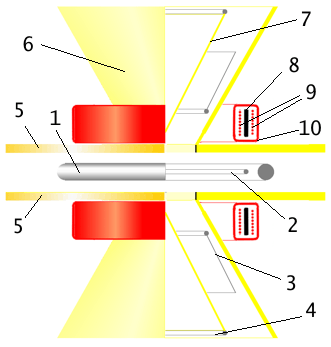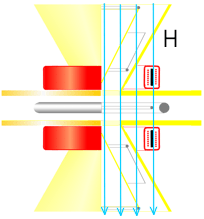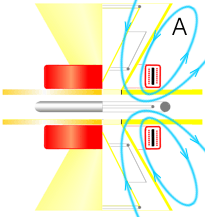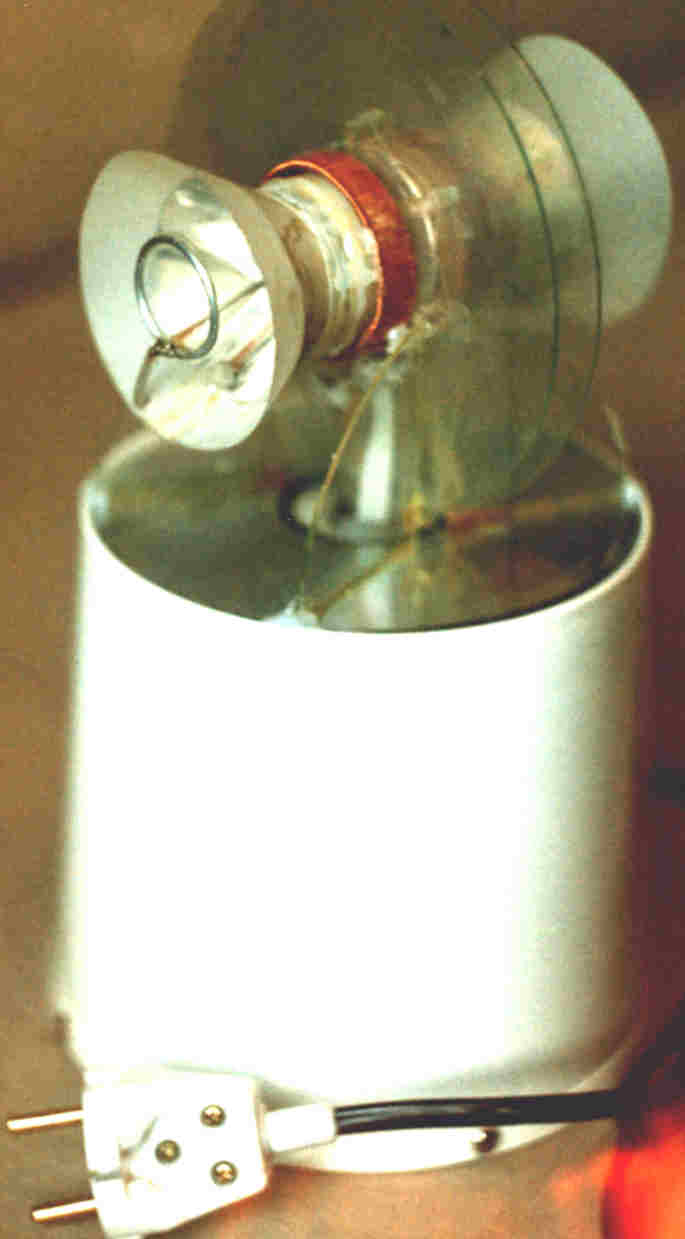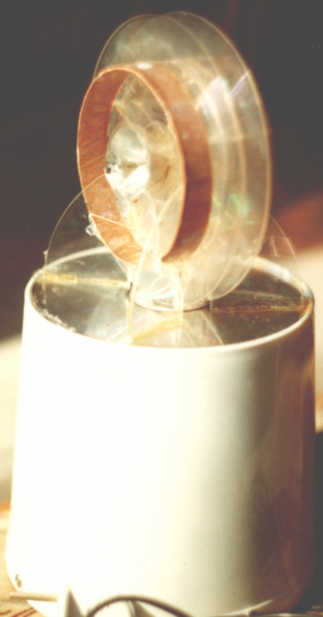Alexander A.Shpilman ( alexandrshpilman78@gmail.com )
The Imitator of a "Place Power " IPP-2
The design of
the high-voltage imitator of a "place power" (IPP-1) generating
DS-state elements (see Time - Overtime) is described in the article "The High-Voltage Generator of DS-state Elements".
Except for DS-state elements this generator makes the big stream of usual ions
of air, but that is not always desirable. In a new design (see Fig.1) a stream
of ions, the sizes and weight of the imitator are reduced.
|
|
|
|
|
|
The design consists of two
dielectric disks 2 with apertures in the center, the electrodes 1 and 2 are
settled down between these disks. The electrode 1 is an aluminium ring, 2 is a
ring from a thin tungstic wire. The electrodes 3 (the aluminium cones with the
cut off top) and the aluminium rings 4 are placed in two dielectric cones 6.
The pulsing voltage 15kV + 130V is
fed on the ring 1.
The pulsing voltage 15kV is fed on
the ring 2.
The pulsing voltage -15kV is fed on
the cones 3.
The rings 4 have zero potential.
The vector potential of spiral
structure is created with two toroidal electric coils 10 and cylindrical 9,
reeled up on the iron rings 8.
The cylindrical electric coils 10
create magnetic field H (see Fig.2), this field is parallel to the axis
of the device.
The toroidal coils 9
create vector (magnetic) potential A directed as it is shown in Fig.9.
Such combination of electric coils in the sum creates vector potential of
spiral structure with the opposite polarization in the top and in the bottom
cone.
The corona discharge on the thin
tungstic electrode 2 ionizes air and induces the ions with a positive charge.
The difference of a voltage 130V between the electrodes 1 and 2 strengthens the
splitting between the components of the "axion fields" with a negative
and positive electric pseudo-charge of these ions (the first act of the DSS
elements’ generation). The ions with a positive charge carry away the air and
drift to the electrode 3 through the apertures in the center of dielectric
disks 5, where their recharge occurs (change of a sign of the charge on the
opposite one).
|
|
Then the
ions with a negative charge together with the stream of air leave upwards and downwards
along the axis (along the surface of the cones 3) of the device. The rings 4
are located above the cones 3 for stabilization of the corona discharge at end
faces of these cones.
Dielectric cones 6 and 7 prevent the access of
the stream of air from sides and in the center (from the outside) of the device
to the negative electrodes 3.
Unlike usual ions the negative DSS ions go up
or down of the design according to their polarization. And then leave the
design in the corresponding direction.
|
|
You can buy the imitator of a "place
power" IPP-2 Information on E-mail: alexandrshpilman78@gmail.com |
